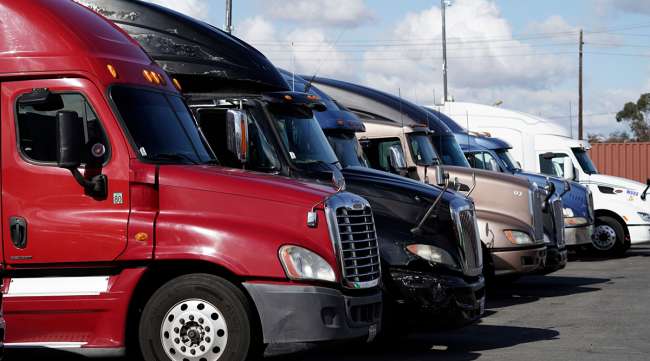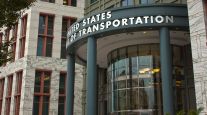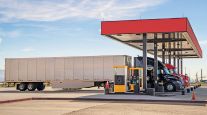Senate Overturns Biden’s Anti-Smog Rules for Big Rigs

[Stay on top of transportation news: Get TTNews in your inbox.]
The Senate voted to overturn President Joe Biden’s pollution limits for big rigs that Republicans said were too aggressive, but were heralded by environmentalists as long overdue.
The decision, in a 50-49 vote, rescinds rules that went into effect last month setting limits on soot and smog from heavy-duty vehicles starting in model year 2027. The White House has threatened to veto the legislation, which would require a two-thirds majority to overcome.
“This expensive rule won’t just negatively affect truckers. It will have a negative impact on our economy as a whole,” said Sen. Deb Fischer (R-Neb.), who sponsored the so-called Congressional Review Act measure, which only requires a simple majority to pass.
The standards, which marked the first update in Environmental Protection Agency rules in 20 years, were projected to cut heavy-duty vehicle emissions of nitrogen oxide — a poisonous gas that contributes to smog — some 48% by 2045.

This special "Inside the List" episode features the Transport Topics 2023 Top 100 largest logistics companies. Hear the program above and at RoadSigns.TTNews.com.
Trucking companies and congressional critics argued the rules, estimated to cost about $2,500 to $8,300 per vehicle, were too expensive and came amid driver shortages and supply chain woes. Supporters praised the regulation as key to stemming respiratory illnesses stoked when nitrogen oxide spews out of tailpipes and reacts with sunlight to form ozone.
“The transportation sector is the largest source of climate pollution and is a major threat to public health,” the League of Conservation Voters said in a letter to senators April 26. “Pollution from heavy-duty vehicles harms everyone but is especially hazardous to low-wealth communities and communities of color who live closest to major highways, freight hubs and high-traffic areas.”
Want more news? Listen to today's daily briefing below or go here for more info:




